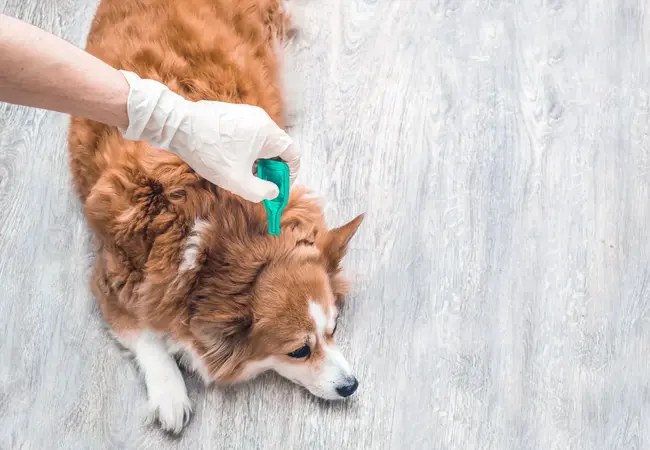Adopting a Dog with Lyme Disease 2025: Vet Guide to Care & Prevention 🐾

In this article
Adopting a Dog with Lyme Disease 2025: Vet Guide to Care & Prevention 🐾
By Dr. Duncan Houston BVSc
Welcoming a dog with Lyme disease into your home can be a wonderful act of compassion—and, with proper care, these dogs often go on to live healthy lives. This guide, authored by Dr Duncan Houston BVSc, outlines everything you need to know: from pre-adoption questions and diagnosis to treatment, monitoring, prevention, and ongoing wellness tools.
1. 🤔 What Is Lyme Disease in Dogs?
Lyme disease is caused by the bacterium Borre lia burgdorferi, transmitted through infected deer ticks (Ixodes scapularis or I. pacificus in North America). Only about 5–10% of infected dogs develop symptoms.
2. 📝 Before Adoption: Shelter Checklist
Make sure the shelter provides a detailed history:
- Which diagnostic test was used (e.g., SNAP 4Dx)?
- Results of any bloodwork or urinalysis to assess organ involvement
- Symptom history: Did they ever exhibit lameness, swollen joints, fever, or lethargy?
- Details of antibiotic treatment—usually doxycycline for ~30 days
3. 🩺 Common Symptoms to Watch
- Lameness or shifting-leg pain
- Joint swelling and general stiffness
- Fever, lethargy, reduced appetite
- Swollen lymph nodes, kidney signs (increased thirst/urination), or vomiting/diarrhea
4. 💊 Treatment & Continued Care
Shelters typically start doxycycline therapy (~4 weeks) before adoption, with tenderness improving within 1–2 days. As a new owner, follow these steps:
- Schedule a vet visit within a week of adoption
- Confirm antibiotic completion; if interrupted, restart or extend treatment
- Monitor for residual joint discomfort—pain meds like gabapentin or NSAIDs may be needed
- If kidney disease (Lyme nephritis) is suspected, be prepared for hospitalization, IV therapy, frequent monitoring, and a specialized diet
5. 🩹 Ongoing Monitoring & Support
- Track lameness or stiffness and note any flare-ups
- Monitor appetite, water intake, urination, and bowel movements
- Have regular vet checkups that include urinalysis for kidney function and joint exams
- Manage any chronic joint pain with supplements (like glucosamine) and provide orthopedic bedding
6. 🛡️ Prevention: Avoid Re‑infection
- Use vet-recommended tick preventatives monthly (oral or topical)
- Perform full-body tick checks after being outdoors—focus on ears, groin, belly, toes
- Landscaping controls: clear grass and brush near home
- Vaccinate annually in endemic areas starting at ~12 weeks
7. 🏡 Lifestyle & Wellness Tips
- Provide regular low-impact exercise like swimming or gentle walks to support joint function
- Opt for a joint-friendly diet or supplements (e.g., omega‑3, glucosamine)
- Use the **Ask A Vet App** for ongoing support or behavior guidance
8. 🐕 Long-Term Outlook & Quality of Life
- Dogs who complete antibiotic therapy early often recover fully
- Some may require continued pain management for chronic arthritis
- Kidney-involved cases (Lyme nephritis) have a more guarded prognosis
- Lyme infection doesn't shorten lifespan if properly managed
- Once recovered, these dogs can live active, happy lives, bond with families, and even help other adoptees through foster and training work
9. 🛠️ Your Adoption Prep Checklist
| Step | Details |
|---|---|
| Medical Records | Confirm diagnostics and treatment timeline from shelter |
| Vet Visit | Baseline check within 1 week (blood, urinalysis, exam) |
| Finish Antibiotics | Complete full doxycycline course as prescribed |
| Tick Prevention | Start vet-recommended product & tick checks |
| Vaccinate | Start Lyme series if not previously done |
| Track | Monitor joints, appetite, hydration, elimination, mood |
10. 📌 Final Takeaways
- Lyme disease is treatable—dogs who get care early often recover completely
- Complete antibiotic therapy and monitor for joint/kidney issues
- Prevent future tick exposures with medication, vaccination, and environmental control
- Provide supportive joint care and mental wellness tools
- Use vet guidance and the Ask A Vet app for ongoing support
- With proper care, Lyme-positive dogs can thrive and bring immense joy to families






